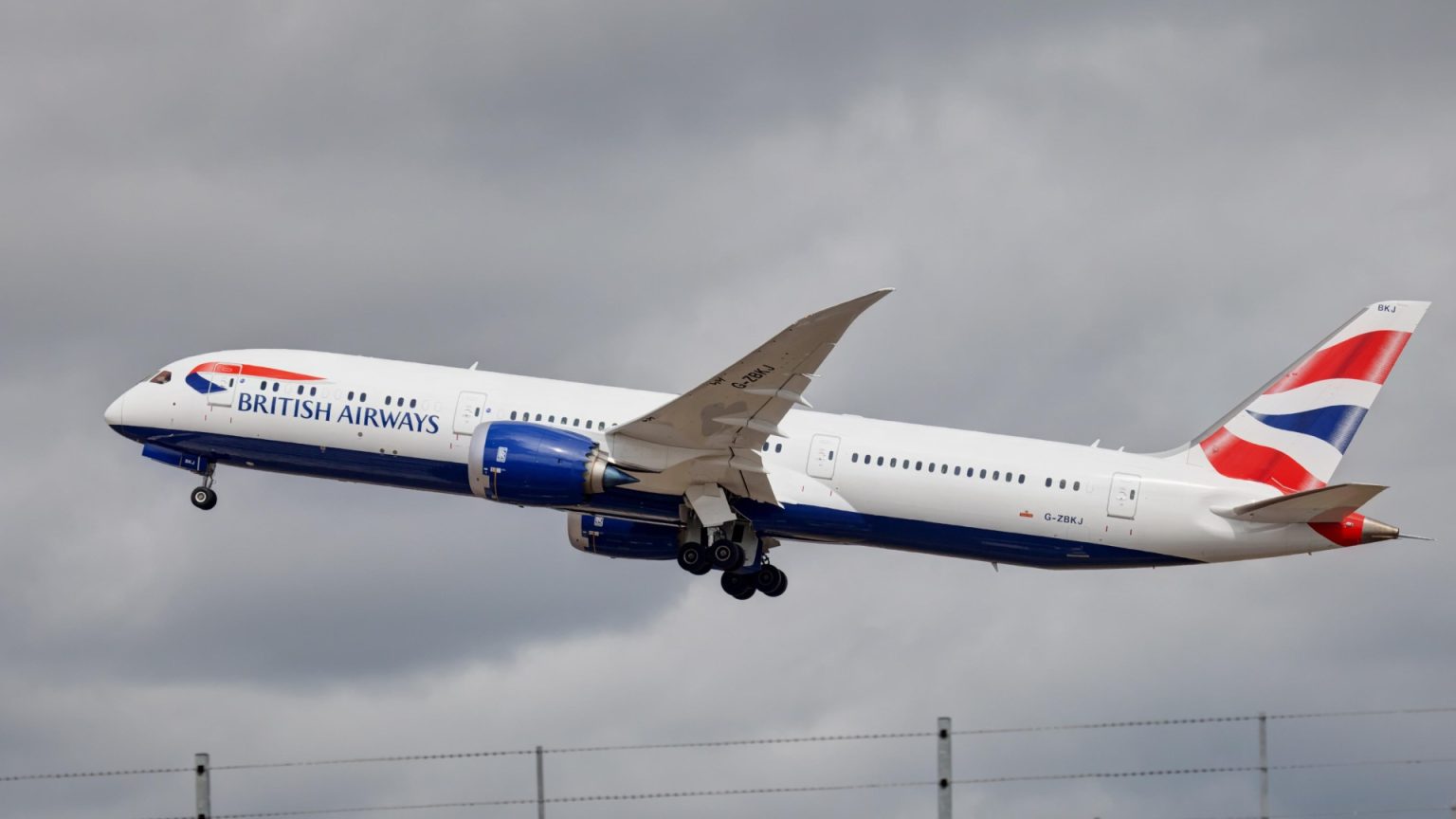British Airways (BA) is facing significant operational disruptions due to persistent engine problems affecting five of its Boeing 787 Dreamliner aircraft. These issues, stemming from Rolls-Royce Trent 1000 engines, have led to flight cancellations, route alterations, and potential compensation claims against the engine manufacturer. The grounding of these aircraft at Heathrow Airport is anticipated to last for an extended period, possibly up to a year, due to supply chain delays at Rolls-Royce. Passengers booked on affected flights are facing inconveniences such as longer routes, alternative departure airports, and potentially increased travel costs. BA is resorting to cannibalizing parts from one grounded 787 to maintain the operational status of its remaining fleet. This situation follows previous service reductions and cancellations on routes to Kuala Lumpur and other major cities due to similar engine durability issues. Virgin Atlantic has also experienced disruptions related to the same Rolls-Royce engine problems, with its CEO openly criticizing the engine’s reliability. While Rolls-Royce maintains that the engine has a proven reliability record with millions of in-service flying hours, the ongoing issues with BA and Virgin Atlantic raise concerns about the engine’s long-term performance.
The engine troubles compound a challenging year for Boeing, already grappling with the fallout from a mid-air door-peg failure on a US flight in January. The combination of safety concerns and operational disruptions presents a significant challenge for both the aircraft manufacturer and airlines operating the 787 Dreamliner. BA’s demands for compensation from Rolls-Royce underscore the financial implications of these grounded aircraft, including lost revenue from cancelled flights and the costs associated with re-routing passengers and providing alternative travel arrangements. The prolonged grounding of these aircraft will likely have a cascading effect on BA’s operations, potentially impacting its flight schedules and customer satisfaction.
Meanwhile, several unrelated business developments are unfolding across different sectors. Wetherspoons, a popular UK pub chain, is expanding its presence into Haven holiday parks, investing £6.7 million to open four new locations. This move aims to capitalize on the demand for affordable food and beverages within holiday park settings, offering vacationers a budget-friendly alternative to on-site dining options. This expansion represents a strategic move for Wetherspoons, tapping into a new market segment and diversifying its revenue streams. The partnership with Haven holiday parks provides Wetherspoons access to a captive audience and aligns with the growing trend of offering diverse amenities within holiday resorts.
Amazon is introducing on-foot deliveries in central London, utilizing carts similar to traditional postal services. This “back to the future” approach aims to achieve zero-exhaust emission deliveries and navigate the city’s congestion charge zones efficiently. Furthermore, Amazon is integrating rail transport into its logistics network, utilizing the West Coast main line to move over 20 million products between Scotland and the Midlands. This initiative reduces reliance on road transport, lowering carbon emissions and potentially alleviating traffic congestion. The company’s investment in 148 electric trucks further reinforces its commitment to sustainable delivery solutions. These combined efforts represent a significant step towards reducing Amazon’s environmental footprint and optimizing its delivery network.
GlaxoSmithKline (GSK), a leading pharmaceutical company, is acquiring US-based cancer drug firm IDRX for up to £940 million. This acquisition strengthens GSK’s oncology portfolio, specifically targeting rare stomach and intestine tumors. This strategic move aligns with GSK’s focus on targeted acquisitions of biotech firms to expand its presence in specific therapeutic areas. Under CEO Dame Emma Walmsley, GSK has been pursuing “bolt-on” acquisitions to complement its existing drug development pipeline and bolster its position in the competitive pharmaceutical market. The acquisition of IDRX further solidifies GSK’s commitment to oncology research and development.
The UK hospitality industry is expressing strong opposition to a proposed tourist tax, arguing that it would negatively impact both domestic and international tourism. The potential levy, estimated at £1 per person per night, would apply to stays in campsites, hotels, and B&Bs across the country. Industry representatives argue that the UK is already at a competitive disadvantage following the removal of tax-free shopping for overseas visitors, and an additional tax would further deter tourists. Concerns are raised that the tax would discourage both international visitors and UK residents from taking domestic holidays, ultimately harming the hospitality sector and the broader economy. The industry is advocating for alternative solutions to boost government coffers without jeopardizing the tourism industry.
Finally, PageGroup, a global recruitment firm, has lowered its profit forecasts and implemented further job cuts, reflecting a weakening job market. The company cites uncertainty in Europe and prolonged hiring decisions by businesses as contributing factors to the decline in demand for recruitment services. PageGroup’s recent job cuts follow previous reductions, indicating a continued effort to adjust its workforce to align with market conditions. The company’s lowered earnings forecasts reflect the challenging economic environment and the impact of market uncertainty on recruitment activity. This development serves as an indicator of broader economic trends and the challenges faced by businesses in a volatile market.











